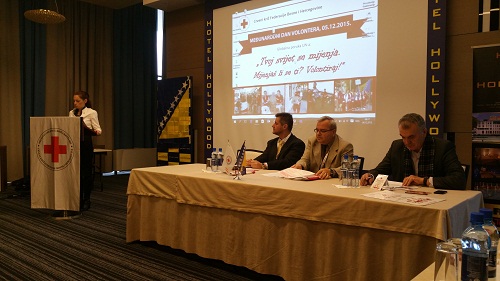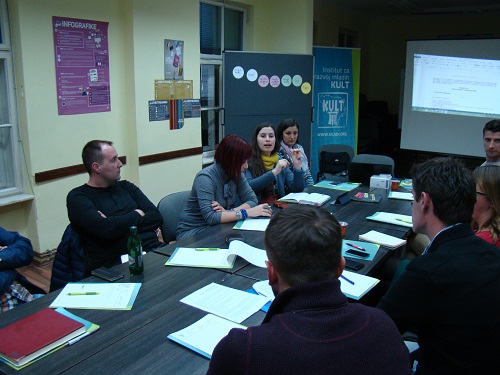On commemorating the International Volunteer Day, the Red Cross of the Federation of BiH organised a conference on topic “The Place and Role of Volunteers in the Society”.
The aim of the conference is to present and exchange experiences on the topic of volunteering at the level of Bosnia and Herzegovina and the region, to recognise the importance of an existing legal framework that defines volunteering in the area of Bosnia and Herzegovina, to emphasize the indicated problems in implementing the Law on Volunteering of FBiH in practice, and to start a constructive dialogue between representatives of the non-governmental and governmental sector in overcoming these problems.
Besides the Red Cross of FBiH and the International Federation of Associations of the Red Cross and the Red Crescent (IFCR) their experiences in the area of volunteering were also presented by representatives of the Red Cross organisation of Serbia.
Amila Dedi?, a representative of the Institute for Youth Development KULT held a presentation on the topic “Recognising and Importance of an Existing Legal Framework”.
“It was necessary to socially verify volunteering in FBiH and to regulate the issue of volunteering in accordance with the principles and procedures of the EU, since there is a substantial gap between the state of practice, in which volunteering exists, and the normative state, which means that volunteering was not legally defined, but is tolerated in practice” – emphasized Amila Dedi?, the representative of the Institute for Youth Development KULT.
The conclusions of her presentation, as well as of the whole conference, were that volunteering, as a stimulant for inciting a wider civil participation, presents a significant mode for improving civil activism, social inclusion and democratic management that increase the human and the social capital of both the individual and the groups through social activities and a general group engagement. Volunteering is a significant component of non-formal education and opens additional options, especially for youth. The availability of such options motivates youth and releases their unique potential and their lack may cause problems related to permanent unemployment and passiveness. Volunteering alleviates the transition from school to work and enables youth to adopt some of the basic business skills, such as a proactive approach, mutual address and communication and managing deadlines. Volunteering also contributes to improving abilities, strengthening qualifications and a greater youth mobility by opening different employment possibilities and improving the perspective of the whole labor market that decreases youth unemployment. The studies of determining the values of economic contribution of the whole non-profit sector at an macroeconomic level have determined an average of 5% GDP one third of which is represents the contribution of formal volunteering action.















Leave a comment